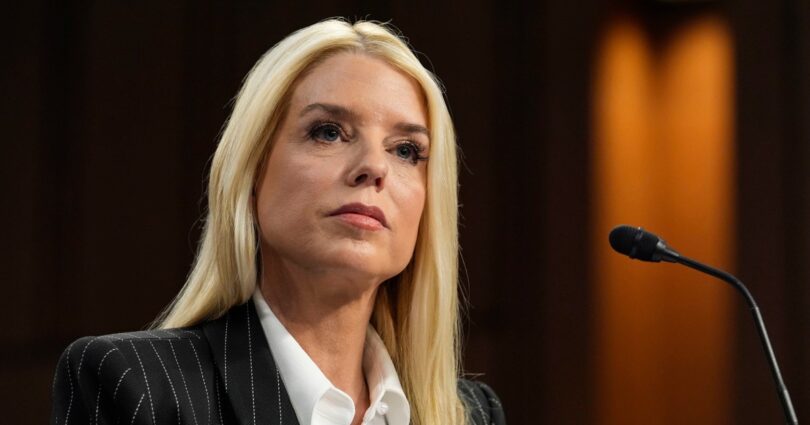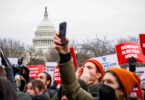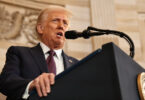The Trump administration sued the state of Illinois and the city of Chicago on Thursday, alleging that their sanctuary city policies are blocking federal authorities from enforcing immigration laws.
The federal lawsuit is the first by President Donald Trump’s Justice Department against states or municipalities that have sanctuary city policies in effect.
The 22-page lawsuit, filed one day after a sanctuary jurisdiction directive was issued by U.S. Attorney General Pam Bondi on her first day on the job, alleged that the sanctuary policies put in place by Illinois, Chicago and Cook County “obstruct” the federal government from enforcing immigration laws.
“The challenged provisions of Illinois, Chicago, and Cook County law reflect their intentional effort to obstruct the Federal Government’s enforcement of federal immigration law and to impede consultation and communication between federal, state, and local law enforcement officials that is necessary for federal officials to carry out federal immigration law and keep Americans safe,” the lawsuit reads.
The suit is the latest vehicle to be used by the Trump administration as it quickly advances its mass deportation push of undocumented immigrants. It may also raise questions about the future enforcement of a directive issued days after the inauguration, when the Trump White House instructed the Justice Department to investigate state or local officials who resist the enforcement of federal immigration laws.
Sanctuary cities or states are not official terms. The labels refer to a state, city, county or municipality that has enacted laws that either explicitly or effectively prevent or limit local officials from cooperating with federal immigration authorities.
The lawsuit specifically references Illinois’ “Trust Act,” Chicago’s “Welcoming City Ordinance” and Cook County’s “Policy for Responding to ICE Detainers.”
The Illinois Trust Act, enacted in 2017, “prevents state and local law enforcement from assisting the federal government with civil immigration enforcement but allows coordination when there is a federal criminal warrant,” according to a fact sheet describing the law provided by the office of Democratic Gov. JB Pritzker.
Chicago’s “Welcoming City Ordinance” and Cook County’s policy essentially spell out that same mission.
The suit seeks both a temporary and permanent blockage on enforcement of all three of the policies.
In a statement to NBC News, Pritzker spokesperson Alex Gough said the state will fight the suit.
“The bipartisan Illinois TRUST Act, signed into law by a Republican governor, has always been compliant with federal law and still is today. Illinois will defend our laws that prioritize police resources for fighting crime while enabling state law enforcement to assist with arresting violent criminals,” Gough said. “Instead of working with us to support law enforcement, the Trump Administration is making it more difficult to protect the public, just like they did when Trump pardoned the convicted January 6 violent criminals. We look forward to seeing them in court.”
Johnson said in a statement that the city’s law department was reviewing the suit and would « respond in due course. »
« Chicago is and will remain a welcoming city, with welcoming people, » Johnson said. « The safety and security of Chicago residents remains the priority, » he said, adding that Chicago « will continue to protect the working people of our city and defend against attacks on our longstanding values. »
Johnson and other Chicago officials have remained fiercely defiant against Trump on immigration issues.
In the weeks following Trump’s victory in November, Johnson, a Democrat, said the city “will not bend or break” on its sanctuary laws.
And last month, the Chicago City Council voted down a proposal that would have eased laws barring city officials from cooperating with federal immigration authorities who are targeting individuals involved in violent crimes.
Trump sparred with Chicago over the same issues during his first administration. The city was the site of one of the administration’s first major enforcement actions after Trump was sworn in last month.
Source link








